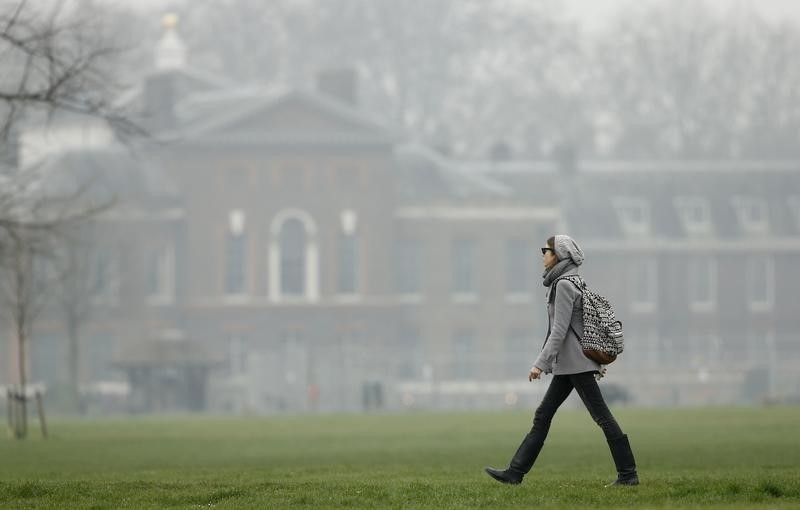By Nina Chestney
LONDON (Reuters) - The British government needs to extend policies and funding to reduce carbon emissions into the next decade to avoid increasing the cost and impact of global warming, Britain's climate change adviser said on Tuesday.
The government has a legally binding target to reduce its greenhouse gas emissions by at least 80 percent from 1990 levels by 2050 to limit the effects of climate change and the committee's role is to advise it on the best way of doing so.
Britain's emissions are currently 36 percent below 1990 levels.
Overall, policies to curb emissions are complex and at times inconsistent, the Committee on Climate Change said in its first report on the government's progress.
"Our assessment of existing policies is that some of these are at risk of failing to deliver, either due to design and delivery problems, or because they are currently unfunded," it said.
"Without significant new policies, progress will fall behind what is required to meet legal obligations through the 2020s," it added.
Many policies to reduce future emissions are due to expire over the course of the current parliament, including funding for low-carbon electricity and heat, measures to encourage the use of low-emission vehicles and improve energy efficiency.
The uncertainty created by the lack of policies after 2020 will lead to stop-start investment, higher costs and increase the risk of not meeting the 2050 goal, the committee said.
To avoid this, the government needs to extend funding for low-carbon electricity generation to 2025 and continue support for low-emission vehicles.
It also needs to set an action plan to delivering low-carbon heat and efficiency; address the risks from rising temperatures and flooding and develop new infrastructure resilient to climate change impacts, the committee said.

"We will provide a full response to the CC's report in October 2015," the government's Department of Energy and Climate Change said.